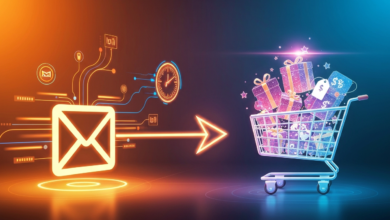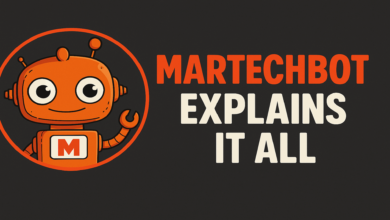ActiveCampaign: The End of Classic Marketing Automation

▼ Summary
– ActiveCampaign announced over 25 AI agents for autonomous marketing that continuously assist marketers during its Fall 2025 Innovations Keynote.
– The company previously launched its Active Intelligence workspace, where AI agents provide context-aware suggestions to improve outcomes and identify opportunities.
– ActiveCampaign’s approach represents a paradigm shift from traditional agentic AI by having agents proactively supply information to users instead of waiting for instructions.
– The new AI agents help marketers with tasks like segmentation, personalization, and campaign migration while integrating into their existing workflows to increase efficiency.
– These AI capabilities are designed to help resource-constrained users—agencies, small business owners, and marketers—scale their marketing efforts through automated insights and next-best actions.
During its Fall 2025 Innovations Keynote, ActiveCampaign unveiled a bold new direction for marketing technology, centered on autonomous marketing powered by more than 25 specialized AI agents. This strategic move signals a fundamental departure from traditional campaign management, positioning the company at the forefront of intelligent marketing systems.
The foundation for this evolution is the Active Intelligence workspace, an environment where context-aware AI agents deliver actionable suggestions focused on achieving specific outcomes. Rather than simply executing commands, these systems analyze performance data to understand effective strategies while continuously scanning for untapped opportunities.
ActiveCampaign frames this development as a paradigm shift in how marketing teams interact with technology. While many professionals have grown accustomed to directing agentic AI tools, the company’s autonomous marketing model reverses this relationship. Instead of marketers instructing agents, the agents now proactively supply critical information to guide human decision-making.
According to Chai Atreya, ActiveCampaign’s chief product officer, this transformation marks the end of an era. “The days of classic marketing automation are over, and that’s a positive development,” he explained. “Traditional marketing required navigating countless campaigns and dedicating extensive hours just to launch a single initiative. The landscape has fundamentally changed.”
The newly introduced agents assist with diverse marketing functions including audience segmentation, content personalization, objective establishment, channel determination, and campaign transitions. A core objective involves embedding these AI capabilities directly into marketers’ daily workflows, accelerating execution across all marketing activities.
Atreya emphasized that ActiveCampaign’s approach extends beyond superficial AI integration. The company has committed to deeply embedding artificial intelligence throughout the user experience, creating systems that anticipate needs rather than simply responding to commands.
ActiveCampaign primarily serves three distinct user groups: marketing agencies, small business proprietors, and individual marketing professionals. These segments frequently operate with limited personnel and budgetary constraints, making the AI-powered scaling capabilities particularly valuable for organizations previously restricted by resource limitations. The technology helps identify critical insights and recommends optimal subsequent actions that might otherwise remain undiscovered.
Recent platform enhancements beyond the AI agents include an MCP server implementation, WhatsApp channel integration, and an intelligent brand kit powered by artificial intelligence. These additions complement the autonomous marketing framework, creating a more cohesive and powerful marketing ecosystem.
(Source: MarTech)





